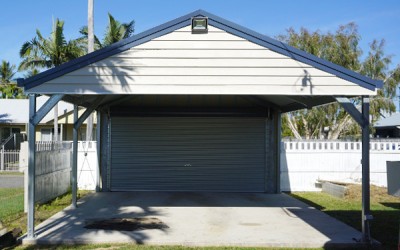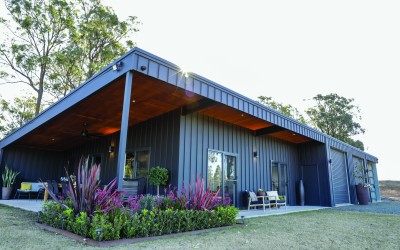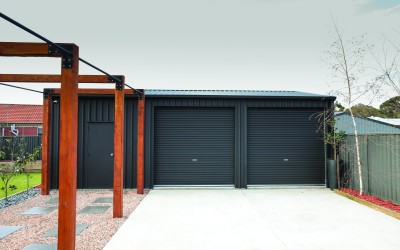
The great Aussie shed can be as unique as our DNA – a personal space used for so many different reasons.
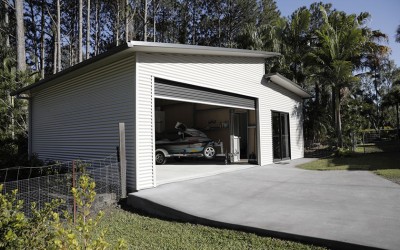
Increase the usability of your home and create a secure garage – either just for functional use, or to add an extra design feature to your home’s façade.

The Aussie barn – with its striking roofline – is the go-to for customers looking for the centre roof height of a barn, but without the drop of an American barn.
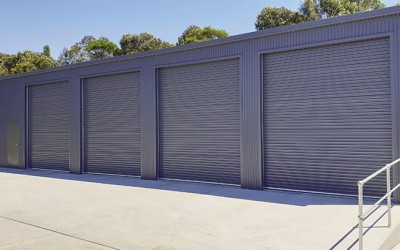
Whether you’re a self-storage facility, builder, owner, investor or buyer, we know self-storage.
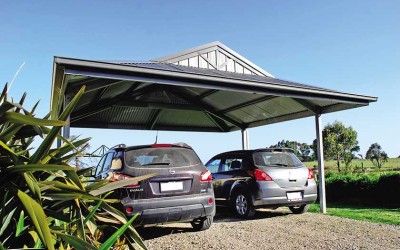
The carport is more than just a protected spot to park your car, it’s an Aussie icon.

The great entertainer – the Aussie patio. It’s not just a patio – it’s where you create memories to last a lifetime.
Hit enter to search or ESC to close
State-by-state guide for carport council approval
24 June 2025
When hoping to build a new carport on your property, there’s one important thing you need to consider before getting started on your plans: Do you need council approval? The answer will depend on the height and floor area of the structure you’re hoping to build, as well as where in Australia you’re based.
When it comes to seeking council approval and making sure your carport meets building regulations, there’s a lot of misinformation out there to get caught up on. However, we’re here to set the record straight to hopefully make your planning stage easier.
Do I need council approval for a carport?
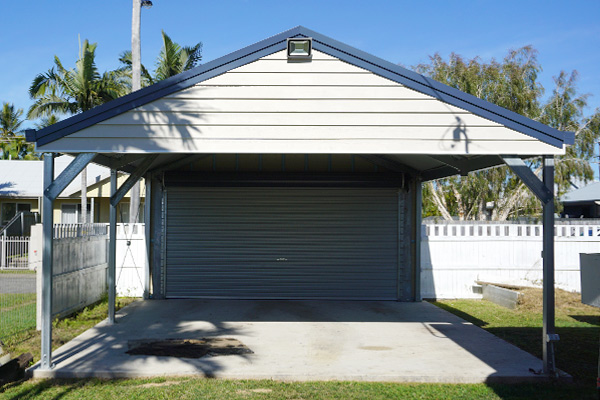
Carport building regulations in Australia vary state by state, and from one local council to the next. However, below we’ve compiled the general rules for each state to give you an idea of whether you’ll need council approval for your carport or not. Here’s what you need to know:
New South Wales
In NSW, you generally won’t need council approval to build your carport, as long as the structure complies with specific development standards. The floor area of your carport must not exceed:
- 20m², on lots with an area of 300m² or less, or
- 50m², for lots larger than 300m² in rural zones and residential Zone R5, or
- 25m², for lots larger than 300m² in other zones.
- The carport must not be higher than 3m above ground level (existing).
You might also need planning approval depending on the location of your property, whether it’s prone to bushfires, in a heritage conservation zone, or on public land. You can only build one carport per property.
Learn more about council approval and carport regulations in New South Wales.
Queensland
When planning a carport in Queensland, your proposal will generally be considered accepted development, as long as it meets the requirements, if your property is:
- In a residential zone
- Not impacted by a relevant overlay
- Not impacted by a neighbourhood plan
You will need building approval before having the right to build your carport. Contact a licensed building certifier to arrange building approval. QLD rules stipulate that any structure that meets or exceeds ‘a plan area of more than 10m²’ will require a permit.
Learn more about council approval and carport regulations in Queensland.
South Australia
In most cases, you will need to apply for council approval when planning to build a carport in South Australia. Any structure that has a roofed area will require approval in SW, particularly if:
- The carport's roof area exceeds 15m² (or 10m² if it is located in a Historic Conservation Zone).
- The carport is taller than 2.5 metres above natural ground level.
- The distance between supporting posts is more than 3 metres.
- The carport is attached to another structure, such as an existing building or fence.
- The location of the carport could impact visibility or traffic safety, especially at road intersections.
- The carport is positioned in a way that affects neighbouring buildings (e.g. it obstructs their view or access to sunlight).
- The property is located within a heritage-listed area, where stricter planning regulations apply.
Learn more about council approval and carport regulations in South Australia.
Western Australia
In Western Australia, development approval is always required when building a carport. WA has strict requirements and building rules, even requiring development approval for minor domestic structures. Even if your proposed development doesn’t need planning permission, there’s a good chance you’ll need a building permit instead.
Depending on your specific council, certified development approval applications might also need to be accompanied by a Residential Design Code (R-Codes). If your carport doesn’t meet the specific criteria set out in the R-Codes, you’ll most likely need planning approval.
There are also strict rules surrounding the distance a carport can be built from a secondary street boundary. For example, the City of Melville has a regulation that states Planning Approval may not be needed if the carport is set back 3.0 metres from the primary street or 3.0 metres from the secondary street, but will be needed if this area is exceeded.
Learn more about council approval and carport regulations in Western Australia.
Tasmania
Many councils in Tasmania don’t require a permit or building approval for building a carport. However, some will need planning approval. You’ll likely need council approval if your carport:
- Exceeds the low-risk work size limits of over 18m² for a non-prefabricated structure or 36m² for a prefabricated shed.
- Is attached to a primary and secondary dwelling, garage, or other residential buildings.
- Is within 900mm to 1.5 metres of a boundary line, especially the secondary street boundary.
- Is located in a bushfire-prone area.
- Is constructed on land subject to heritage or environmental overlays.
- Affects front walls, fences, or impacts neighbouring properties.
- Is built in a unit complex that requires body corporate approval.
Council approval is generally not needed if your carport doesn’t fit into any of the above categories and is prefabricated under 36m² or non-prefabricated under 18m².
Learn more about council approval and carport regulations in Tasmania.
Northern Territory
People often confuse the exemptions for sheds, fences, and shade structures in the Northern Territory with carports, but this isn’t true. You’ll need building approval for a carport, as there are no exemptions for this type of structure.
To get building approval in the Northern Territory, you can either enlist the help of:
- An approved self-certifying manufacturer, or
- A registered NT building certifier.
To learn more about obtaining council approval for your carport in the Northern Territory, keep reading here.
Victoria
In Victoria, whether you need council approval for your carport depends on the specific plans you have for it. Carports might not require a permit if:
- The floor area is less than 10m².
- The height is less than 3m or 2.4m within 1m of the boundary line.
- It is attached to another building on the same property.
- It is located behind the front wall of the main building.
- It is not constructed of masonry.
Learn more about council approval and carport regulations in Victoria.
Other carport regulations
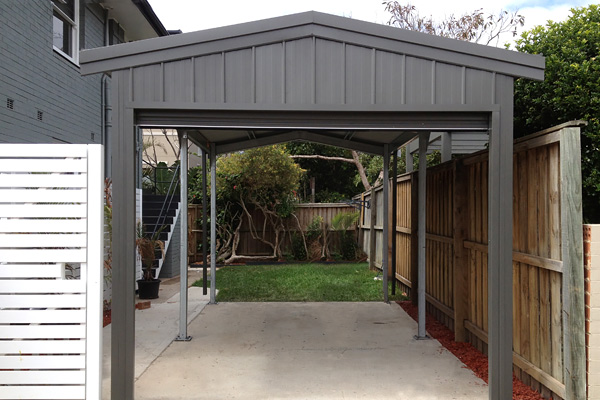
Can a local council stipulate how many carports you can have?
Yes. In Australia, local councils can regulate the number of carports allowed on a property. While some states have specific regulations, like NSW only allowing one carport per dwelling, other states might have different rules or leave it to individual councils to decide.
It’s essential that you check with the specific local council of your area for accurate and up-to-date information on how many carports you are allowed on your property.
Are there cases when carports are denied building approval and not allowed?
Yes. Building approval for carports can be denied in Australia if they don’t meet specific criteria and regulations, including size, height, location, and compliance with local council requirements. For example, properties with narrow widths, a lack of secondary vehicle access, or unusual shapes might face restrictions.
Working with a licensed building certifier can help prevent your carport plans from being denied building approval.
What is the maximum size carport allowed?
The maximum size of your carport usually depends on the size of your property or yard. However, each state and council has different requirements and restrictions, so it’s best to check with your local council about the maximum size you’re allowed to build.
Are there any regulations around the disposal of rainwater from the roof?
Yes. Rainwater disposal regulations tend to focus on ensuring that it doesn’t negatively impact properties or the environment, with some specific requirements for rainwater tanks. Generally, it’s legal to collect rainwater from your carport roof, but it’s crucial that you dispose of it properly, especially with stormwater, to prevent flooding or erosion.
For example, draining rainwater into tanks can become a health risk by providing a breeding site for mosquitoes.
Most states and councils will have rules surrounding the disposal of rainwater from the roof of a carport, and this might be required to be outlined in your building application to receive council approval. However, this will depend on where your property is located.
Am I allowed to connect a carport to my house or an existing building?
Yes, although you will need to note this on your development application and plans. Connecting a carport to a dwelling will also require input from a professional to make sure your plans are safe. This will often consist of your house’s facias and eaves being assessed to make sure they’re capable of holding the weight of the carport.
If your house’s facias and eaves aren’t capable of holding the weight, you’ll need to get the area reinforced. This will come at an extra cost, so it’s important to consider beforehand whether you’re happy to front this.
Having said this, you might only be able to connect your carport to your house depending on your council’s rules and how close it will be to the property boundary. Make sure you include the plans to connect your carport to your house or existing building before submitting them for approval. As long as you’ve received approval to build the exact carport in your plans from the local council, then the complying development will be allowed.
Does every state require council approval to build a carport?
No. While most states require some form of approval from the council for a carport, some will have exceptions where it won’t be required.
Can I build a carport if I live in a bushfire-prone area?
In most cases, yes, you can build a carport in a bushfire-prone area. However, various councils have different rules for building on land that is prone to bushfires, so it’s important that you know where your territory stands on the matter.
For example, in NSW, a carport must be constructed of incombustible materials if it’s built within five metres of a house on land considered to be prone to bushfires. A licensed building certifier will be able to work with you to figure out if this applies to your proposed carport or not.
What other approvals do I need to consider?
Rules surrounding carport approvals vary greatly from state to state, so it’s difficult to stipulate exactly what is and isn’t required. To find out the specific regulations and the approvals that you’ll need to consider, you can check out your local council’s website or get in touch with your local authority. You can also enlist the help of a building certifier, as they’ll be able to help make sure your application is as likely to be approved as possible.
Ready for a quote?
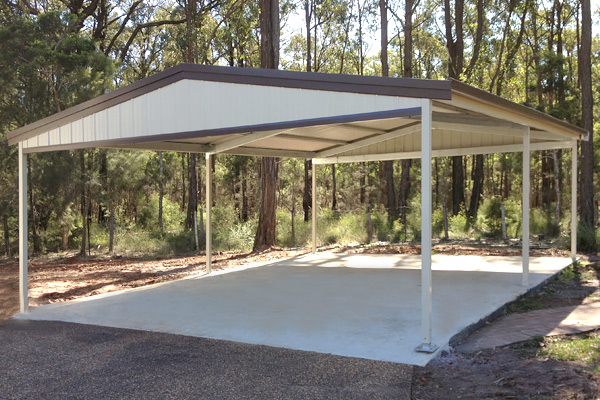
If you’re looking to build a carport and want more information about your options and the cost, contact your local Fair Dinkum Builds store for a quote. We can help you create the plans for your perfect carport so you know exactly what council approvals you’ll need!



